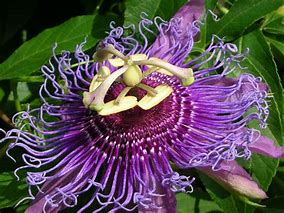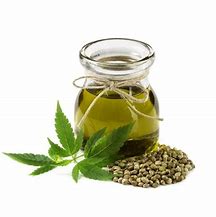Passion Flower OIl (Macerated)






Passion Flower OIl (Macerated)
Latin Name: Passiflora incarnata L.
Family: Passifloraceae
ETYMOLOGY
Also known as apricot vine, granadilla, maypop, Passiflora or passion vine and is so called because the stigma, stamens and sepals are likened to the instruments associated with Christ's passion and crucifixion.
The Plant and its Environment
The passion flower is a native of Brazil, Australasia, Mexico and parts of Africa. It is a perennial, clinging vine having alternate leaves with a woody stem up to 10 metres (33 feet) in length, with pretty white and purple flowers, which give rise to the edible fruit.
The Oil
A fixed oil is obtained from the seeds by expression, the seed hulls and kernels releasing the crude oil, which is then filtered to remove sediment and impurities: this oil (V16:0 9%, C18:1 13%, C18:2 67%) is used in the food and cosmetics industries. It is the macerated oil which is of particular importance in aromatherapy.
Method of Extraction (Macerated)
The flowers contain, among other things, 0.1% essential oil, which has been shown to be sedative on inhalation (Buchbauer et al 1992). For use in aromatherapy, the flowers are macerated in organic sunflower oil.
Folk-lore and Traditional Plant Use
The Aztecs and Incas of South America valued the passion Flower because of its pain relieving and soothing powers. It has been used as a remedy for neuralgia and irritative disorders.
Tradition attributes to the passion flower sedative, antispasmodic and tranquillizing properties (Bianchini & Corbetta 1985), partially confirmed by animal experiments, although the constituents responsible for the sedative activity are not known with certainty. There is an absence of clinical trials, but observation supports the usefulness of neurosedative preparations of this plant.
Powders, infusions and extracts are traditionally used to treat cardiac rhythm abnormalities in adults, and nervousness and sleeplessness in children and adults; often used for this in combination with hawthorn, valerian and other sedative plants (Bruneton 1995). Herbal compresses containing extract appear to reduce inflammation (Earle 1991). Passion flower extract has been used successfully to treat burns.
Therapeutic properties - Internal Use
Passion flower is stated to possess sedative, hypnotic and antispasmodic properties. (Newall 1996), and extracts are used to combat sleeplessness, nervous excitability and tachycardia (Bartram 1996).
Therapeutic Properties - External Use
In massage, the oil is said to be helpful against insomnia and is a good relaxtant
Culinary Use
The edible fruits are refreshing, and are sometimes used comercially in drinks.
Cautionary notes
passion flower oil has no known contraindications.
Reference: Carrier Oils for Aromatherapy & Massage: Len Price with Ian Smith & Shirley Price
Articles-Most Read
- Home
- Contact Us
- Coconut Oil-2
- Absorption Ratings for Carrier Oils
- Cold Pressing Method
- What are Essential Fatty Acids
- Cherry Kernel Oil
- Fixed Oils and Skin Penetration
- Hempseed Oil
- Almond Oil
- Cocoa butter
- Camelina Oil
- Antibacterial Effects Of Carrier Oil
- Coconut Oil
- Lime Blossom Oil (macerated)
- Carrot Oil, Wild Carrot Oil (macerated)
- Apricot Kernel Oil
- Kukui Nut Oil
- Pumkin Seed Oil - Cucurbita maxima, C. pepo
- Jojoba Wax
- Passion Flower OIl (Macerated)
- Hydrocotyle Oil (macerated)
- Palm Kernel Oil
- Rapeseed Oil - Carrier Oil
- Nutrients
Who's On Line
We have 25 guests and no members online
Articles-Latest
- How to Make Homemade Olive Oil: A Step-by-Step Guide
- 20 Evidence-Based Aloe Vera Oil Benefits For Skin, Hair & Health
- Peanut oil - Cold pressed - Are There Health Benefits? How To Make
- What Are the Health Benefits of Black Seed Oil?
- Comfrey oil Infused
- Chamomile Flowers Infused Oil
- Calendula Flowers Infused Oil
- Arnica Flowers Infused Oil
- How To Make Herb-Infused Oils
- DIY avocado oil for healthy skin
- How To Make Coconut Oil
- 8 Benefits of Mustard Oil, Plus How to Use It
- SHOREA STENOPTERA SEED BUTTER
- Shea Butter- 7 Amazing Benefits Of Shea Butter
- Monoi Oil For Hair & Skin
- Mango Seed Oil
- Cohune Oil Is The Next Big Thing
- Brazil Nut OIl
- 7 Impressive Benefits Of Allspice
- Camelina Oil Benefits, Uses, and Side Effects



